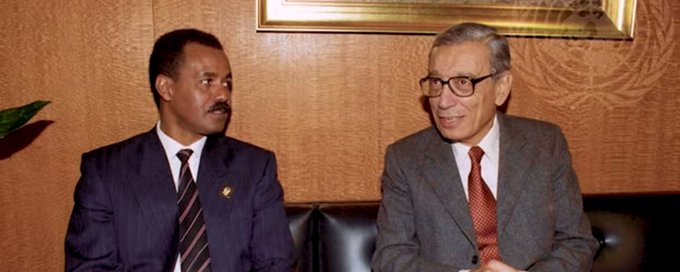
8
Oct
Boutros Boutros-Ghali, Egypt, And The 1993 “UN Monitored” Eritrean Referendum
Boutros Boutros-Ghali (1922–2016) was an Egyptian diplomat whose career was deeply intertwined with Cairo’s strategic vision for the Horn of Africa. Rising through the ranks of Egypt’s foreign ministry, he served as Minister of State for Foreign Affairs (1977–1991), a role in which he systematically advanced Egypt’s regional policies aimed at securing dominance over the Nile, extending influence along the Red Sea, and strategically weakening Ethiopia – the only upstream state with the geographic and hydrological potential to challenge Egyptian control over the Nile waters. His career was characterized by unwavering loyalty to Egypt’s national interests, and his policies consistently aligned with Egypt’s long-standing strategy of ensuring Ethiopia’s internal destabilization, economic dependency, and geopolitical isolation.
Boutros Boutros-Ghali was a direct descendant – and, most notably, the grandson – of Boutros Ghali, Egypt’s Prime Minister who assumed office in 1908, six years after the signing of the 1902 Anglo-Ethiopian Treaty on the use of the Nile. During his career, Boutros-Ghali was also a member of President Hosni Mubarak’s National Democratic Party (NDP), an Arab socialist formation that embodied Egypt’s state-centered nationalism and its regional ambitions. His ideological alignment with the NDP reflected not only loyalty to Mubarak’s administration but also adherence to the broader Egyptian doctrine that viewed a strong Ethiopia as a strategic challenge to Cairo’s hydropolitical dominance and regional primacy.
In 1992, exactly one year after the TPLF came to power in Addis Ababa, Boutros Boutros-Ghali assumed office as the sixth Secretary-General of the United Nations. This was a critical moment in the Horn’s history: Egypt’s regional proxies – the EPLF and TPLF – had consolidated control, while Ghali’s rise to the UN’s top diplomatic post effectively positioned Cairo to shape international narratives and decisions regarding the future of the Horn of Africa. During his tenure, Yugoslavia disintegrated, the Rwandan genocide occurred, and Ethiopia was rendered landlocked through Eritrea’s secession – all under UN oversight directed by a Secretary-General whose career had been defined by Egyptian national interest.
The rise of the Eritrean People’s Liberation Front (EPLF) cannot be separated from the regional chessboard that Egypt had carefully constructed over decades. Ethiopia, despite chronic internal challenges, demonstrated resilience amid constant external interference. Egypt, however, had long understood that Ethiopia’s greatest vulnerability lay in its internal divisions and its dependence on external trade routes. Beginning in the late 1950s, Cairo provided sanctuary, funding, and media platforms to Eritrean separatist movements – first the Eritrean Liberation Front (ELF) and later the Eritrean People Liberation Front (EPLF) – both of which were formally organized and coordinated in Cairo with direct Egyptian support.
The Egyptian role extended beyond Eritrea. Following the model of Cairo-backed Eritrean insurgencies, the Tigray People’s Liberation Front (TPLF) was later formed under Egyptian auspices, and one of the preconditions set by Egyptian intelligence for its formation was the unconditional acceptance of Eritrean independence. This effectively aligned both movements – EPLF and TPLF – under a single Egyptian strategic umbrella designed to fracture Ethiopian sovereignty and deny Addis Ababa access to the Red Sea.
In January 1993, Boutros Boutros-Ghali visited Addis Ababa under the official pretext of discussing the Somalia issue. However, the timing coincided with growing public outrage over the upcoming Eritrean secession referendum. Ethiopians, particularly students from Addis Ababa University, took to the streets to denounce the process, calling it externally imposed and illegitimate. Protesters submitted petitions rejecting the referendum, warning that it would permanently strip Ethiopia of its coastline. The demonstration was met with violence: EPLF and TPLF fighters, recently integrated into the transitional security apparatus, opened fire on demonstrators, killing several students. Ghali ignored the bloodshed and the public outcry, and instead proceeded to Asmara the following day, meeting with EPLF officials – an act widely interpreted as a symbolic endorsement of the secessionist process and a reflection of his long-standing ties to Eritrean leadership circles nurtured during his time as Egypt’s foreign minister.
Meanwhile, Egypt’s engagement with Eritrean nationalism had been a decades-long project of proxy influence. Cairo’s military and intelligence institutions cultivated Eritrean movements to curtail Ethiopia’s reach to the Red Sea and its capacity to develop independent economic corridors. At the same time, Egypt maintained covert ties with the TPLF during the armed struggle in northern Ethiopia. By supporting both insurgencies, Egypt effectively encircled Ethiopia from within and without, ensuring that the post-Derg political order would emerge fragmented and dependent.
The geopolitical web extended beyond Africa. The United States, aware of Egyptian maneuvers, quietly supported arrangements that would allow Ethiopia continued access to the Red Sea, particularly through the port of Assab, even if Eritrea achieved nominal “independence”. This position traced back to understandings made between the Derg regime and Israeli intelligence during the Beta Israel evacuation operations, in which both American and Israeli assurances were tied to Ethiopia’s retention of Assab. However, according to testimony from a senior Derg intelligence officer, British economic and strategic interests – rooted in preserving Egypt’s monopoly over the Nile for cotton and agricultural production – intervened to derail this arrangement.
The logic was calculated: a landlocked Ethiopia would have reduced incentive to build major hydroelectric projects like the Grand Ethiopian Renaissance Dam (GERD), since the inability to export energy or goods through secure maritime routes would stifle industrial motivation. By this logic, maritime deprivation was a means of ensuring Egypt’s continued dominance over the Nile Basin.
At the center of these overlapping agendas stood Boutros Boutros-Ghali. As UN Secretary-General, he oversaw the UN Observer Mission to Verify the Referendum in Eritrea (UNOVER), which monitored the April 23, 1993 referendum and subsequently endorsed Eritrea’s independence, culminating in its admission to the United Nations on May 28, 1993. The process was unprecedented: never before in UN history had a transitional government, formed through an armed insurgency and lacking formal legitimacy, been permitted to organize a referendum under international supervision. Yet, both the UN and the Organization of African Unity (OAU) sanctioned and legitimized it.
This contradiction became even clearer when placed in today’s AU (African Union) own principles, even though such principle explicitly rejecting unconstitutional changes of government (UCGs) and prohibiting recognition of regimes that came to power through coups or violence is a post-Eritrean phenomenon. In its current form, the African Union has a Zero-tolerance policy, codified in the Constitutive Act. It stipulated the automatic suspension of such governments from participation in continental institutions. Given the lack of this principle at the time, the OAU monitored and endorsed the Eritrean referendum, despite the Ethiopian Transitional Government’s violent origins.
The timing of the OAU chairmanship transition – from Abdou Diouf of Senegal (June 1992–June 1993) to Hosni Mubarak of Egypt (June 1993–June 1994) – is also particularly revealing. Egypt’s assumption of the chairmanship immediately after the referendum underscored Cairo’s ability to shape African institutional behavior to align with its strategic interests. Over time, the African Union (AU) – OAU’s successor – developed a Peace and Security Council (PSC) tasked with sanctioning Unconstitutional Governments (UCGs). Yet, even this body has struggled to apply rules consistently, as seen in the 2025 Gabon case, where sanctions were lifted following a military-led election.
Egypt’s interventions ensured that both the EPLF and TPLF were organized, financed, and strategically guided in ways that served its long-term objectives. Boutros Boutros-Ghali, operating first as Egypt’s foreign minister and later as UN Secretary-General, was the central conduit through which these strategies transitioned from regional policy to global legitimacy.
His tenure at the UN coincided with multiple crises that revealed the selective nature of international governance: the disintegration of Yugoslavia, the Rwandan genocide, and the landlocking of Ethiopia through Eritrea’s secession – all during his time in office. These events underscored a consistent pattern: UN interventions were often shaped less by impartial principles of sovereignty and self-determination and more by the political agendas of dominant member states.
The consequences for Ethiopia were profound. The 1993 Eritrean referendum – conducted under a transitional, unelected, and externally influenced government – resulted in the permanent loss of Ethiopian maritime access, leaving the nation landlocked and strategically constrained. Egypt, in turn, secured enduring leverage over Red Sea routes and Nile Basin negotiations. Decades later, the same dynamics persist in disputes over the GERD and Ethiopia’s right to equitable use of the Nile waters.
In conclusion, the 1993 Eritrean referendum and the subsequent international recognition of Eritrea’s secession violated both international norms and African institutional charters by granting legitimacy to a transitional government that came to power through violence. The UN’s role under Boutros Boutros-Ghali, himself a long-serving Egyptian foreign minister and loyal advocate of Cairo’s strategic goals, further compromised the neutrality of the referendum’s supervision.
Given Egypt’s direct involvement in the formation and financing of both the EPLF and TPLF, and the deliberate geopolitical objective of weakening Ethiopia, the entire process of Eritrea’s separation stands on deeply contested ground. Ethiopia, therefore, retains not only the moral and historical basis but also the legal and diplomatic rationale to disqualify or repudiate the validity of the 1993 referendum and the political arrangements that followed.

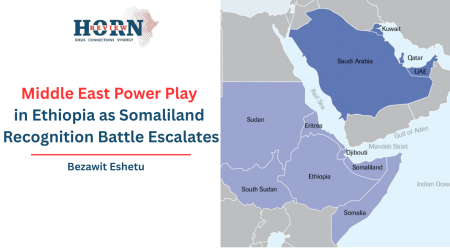
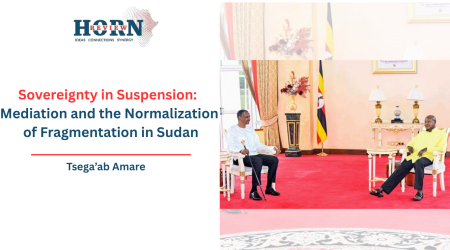
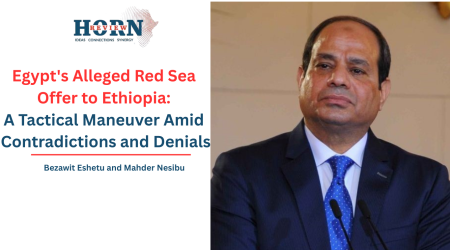
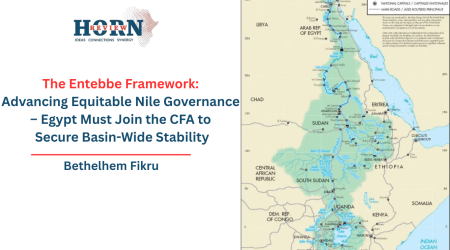
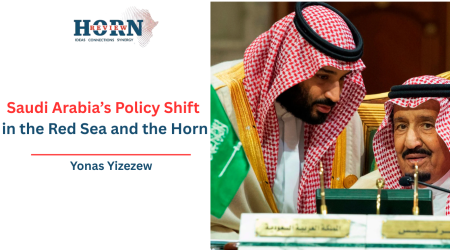
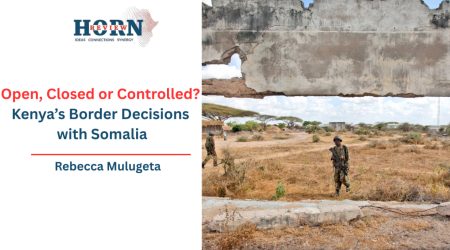
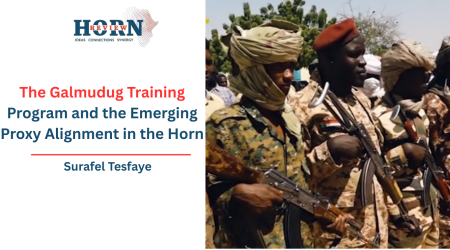
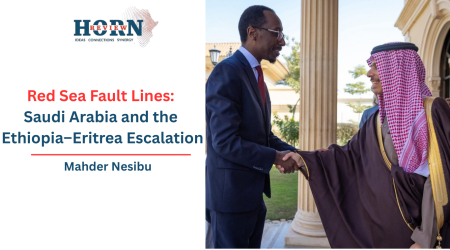
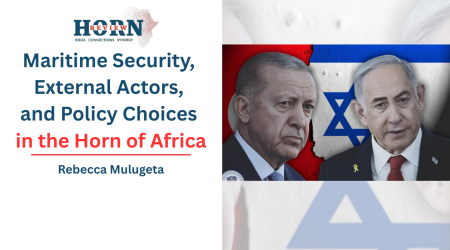
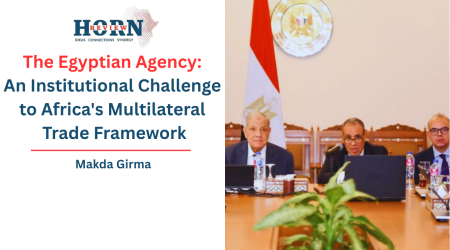
Comment (1)
Thanks Jack, just looking at the map shows the conspiracy dramatized by Italy, France and Britain to curve away Ethiopia from the red sea and gulf of Eden. How could Italy stretch a thousand kilometer narrow strip and create the so called Eritrea. Just next to the tip the French created a piece of land called Djibouti without leaving a corridor to Ethiopia. the British did the similar without leaving a corridor between Djibouti and Somaliland. the main conductor of this symphony, i think is Britain that wanted to make sure a perpetually weak Ethiopia wouldn’t be a threat over Abbay, their major fodder to their textile farms in egypt. the modern pharaohs copied and pasted the british evil deed to preserve an eternal hegemony in the region. they excelled the british formula by adding eternal support both for secession and unending internal conflict. this is what should be made known to the whole world